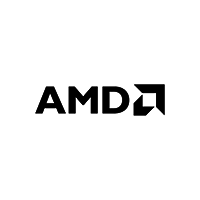
Description
WHAT YOU DO AT AMD CHANGES EVERYTHING
We care deeply about transforming lives with AMD technology to enrich our industry, our communities, and the world. Our mission is to build great products that accelerate next-generation computing experiences – the building blocks for the data center, artificial intelligence, PCs, gaming and embedded. Underpinning our mission is the AMD culture. We push the limits of innovation to solve the world's most important challenges. We strive for execution excellence while being direct, humble, collaborative, and inclusive of diverse perspectives.
AMD together we advance_
THE ROLE:
AMD is looking for a highly motivated and mathematically rigorous individual with a PhD in Mathematics or a related field to join our Server CPU software development team. This role focuses on the research, design, analysis, and optimization of math-oriented algorithms, approximation polynomials for AMD's Zen CPU architecture. You will work on cutting-edge numerical methods, floating-point precision, and function approximation techniques that directly impact performance across scientific, AI, and data-intensive workloads.
THE PERSON:
The successful candidate for this position will be interacting with software and hardware technologists working across many locations. This is a great opportunity to work as a part of highly regarded team to deliver leading edge solutions.
KEY RESPONSIBILITIES:
- Develop and validate function approximations using minimax polynomials and rigorous error analysis.
- Identify and address hard-to-round cases in floating-point computations.
- Analyze floating-point behavior and edge cases (IEEE-754: NaN, Inf, SNaN).
- Collaborate with compiler, architecture, and performance teams to align software with CPU micro architecture Design and optimize math libraries (e.g., elementary functions, transcendental functions) for AMD Zen CPUs.
- Implement high-precision algorithms by extending a given precision using 2x32, 2x64
- Contribute to internal and open-source math projects such as Core-Math and RLibm.
- Publish research, file patents, and present at technical conferences.
PREFERRED EXPERIENCE:
- Strong foundation in numerical analysis, approximation theory, and computational mathematics.
- Deep understanding of IEEE-754 floating point representation and arithmetic.
- Experience handling extreme values and special cases (NaN, Inf, SNaN).
- Familiarity with Core-Math project findings.
- Expertise in elementary function evaluation (e.g., exp, log, sin, cos).
- Techniques for extending precision using 2x32 or 2x64 representations.
- Function approximation strategies across categories.
- Experience with Sollya, BaCSeL, LP solvers.
- Familiarity with RLibm and MPFR-based oracle validation.
- Techniques for identifying hard-to-round cases.
- Construction of optimal minimax polynomials.
- Error analysis methodologies.
- Bonus skills: Experience on Intel MKL libraries, x86 assembly programming (vector/SIMD)
- Knowledge of one or more CPU Profiling tools.
ACADEMIC CREDENTIALS:
- PhD in Mathematics, Applied Mathematics, Computer Science, or a closely related field.
#LI-NS2
Benefits offered are described: AMD benefits at a glance.
AMD does not accept unsolicited resumes from headhunters, recruitment agencies, or fee-based recruitment services. AMD and its subsidiaries are equal opportunity, inclusive employers and will consider all applicants without regard to age, ancestry, color, marital status, medical condition, mental or physical disability, national origin, race, religion, political and/or third-party affiliation, sex, pregnancy, sexual orientation, gender identity, military or veteran status, or any other characteristic protected by law. We encourage applications from all qualified candidates and will accommodate applicants' needs under the respective laws throughout all stages of the recruitment and selection process.
Apply on company website

